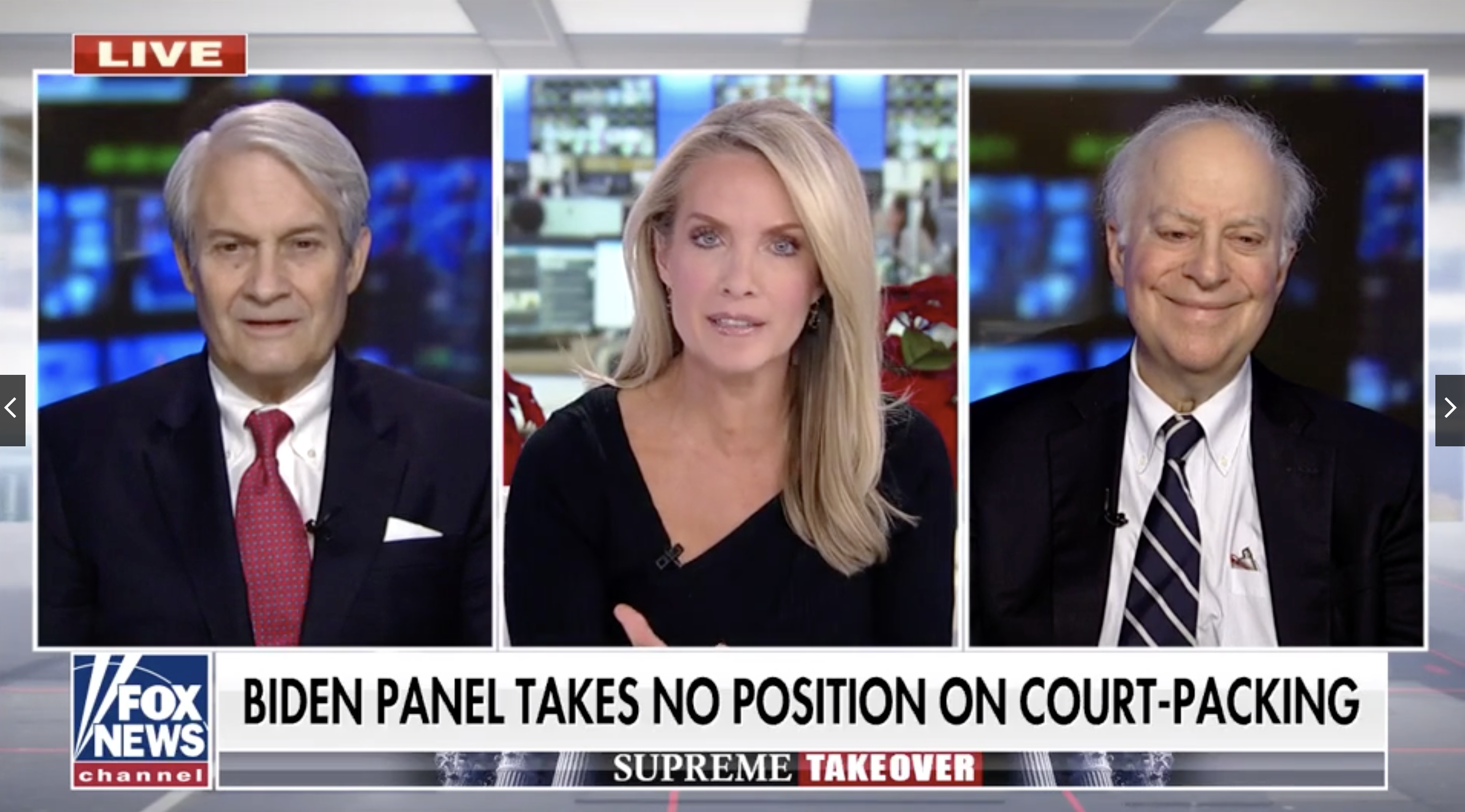Surprise! Two Former Judges See Nothing Wrong With System They Once Benefitted From
By Tyler Cooper, FTC senior researcher

Thomas Griffith and David Levi (right) share a lot in common, beyond a recent op-ed byline. in the Dec. 12 Washington Post.
Both are not only retired federal judges but Republican appointees: Levi was tapped for the Eastern District of California by President George H.W. Bush, while Griffith was appointed to the D.C. Circuit by the other President Bush.
And both are not only Republican appointees but Republican appointees who strategically retired during the waning months of a Republican presidency, ensuring that their successors would also be Republican appointees. Levi retired in June 2007 under President Bush, while Griffith retired in Sept. 2020 under President Trump. (Though Griffith retired in September, he announced his retirement plans in Mar. 2020, allowing the Republican Senate to confirm his replacement before his retirement even became effective).
These two Republican-appointee, Republican-presidency-retiring former federal judges came together to write: “Federal judges are not politicians. They do not identify with political parties or the president who appointed them.”
Is that so?
If you need more than their word for it, Griffith and Levi offer up this: if federal judges were politicians and/or identified with political parties or the president who appointed them, then why didn’t they go along with the Big Lie brought before judges in the aftermath of the 2020 presidential election?
How do Griffith and Levi reconcile this idea with Bush v. Gore? They don’t, they ignore it entirely.
The two also had nothing to say about justices Clarence Thomas, Samuel Alito, and Neil Gorsuch—all Republican appointees—dissenting from denial of cert in 20–542 and 20–574, appeals of a Pennsylvania Supreme Court decision that required election officials to count mailed-in ballots that arrived up to three days after the election.
And still, the judiciary apparently wants extra credit for not doing a coup.
The former federal judges later go on to wax poetic on how very much respected the U.S. judiciary is domestically and internationally.
However, that part about how the American public views the courts comes with the caveat that the judiciary holds the most trust “among the three branches of government,” which is a pretty low bar to clear considering the other branches’ polling numbers.
And if the two commissioners do in fact value to the conclusions of other countries, then you’d think they’d be warmer on term limits considering, as their own report states on page 112:“The United States is the only major constitutional democracy in the world that has neither a retirement age nor a fixed term limit for its high court justices.”
The duo saves perhaps their laziest arguments for term limits specifically.
They first grumble, “It seems possible, even likely, that presidential candidates would announce their Supreme Court choices as part of the campaign, turning potential nominations into political fodder.”
As if Donald Trump didn’t already do this, repeatedly. Joe Biden didn’t name names, but he did pledge to nominate a black woman at his first opportunity. During the 1980 presidential campaign, Ronald Reagan pledged that he’d appoint the first female justice if given the opportunity.
Next they complain about the prospect of more regular confirmation hearings — both that that would be too much of a political spectacle to handle and that it would lead to more frequent doctrinal shifts.
As for whether two SCOTUS confirmation hearings every four years would be too much for the nation to take, we can report that when we conducted a series of focus groups on SCOTUS term limits just after Justice Kavanaugh’s confirmation we found that most people were unable to recall any details whatsoever of Justice Gorsuch’s confirmation, which had occurred just over a year prior (p. 143).
The idea that rotating justices would create wild doctrinal shifts is an odd argument to make by two who earlier wrote, “Federal judges are not politicians. They do not identify with political parties or the president who appointed them.”
Ultimately, an independent judiciary is better served by judges who serve for a time rather than for all-time like monarchs. But it should not be surprising that some of our current and former judicial-kings would rather their erstwhile colleagues keep their seats on the throne.